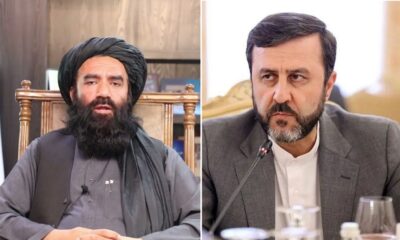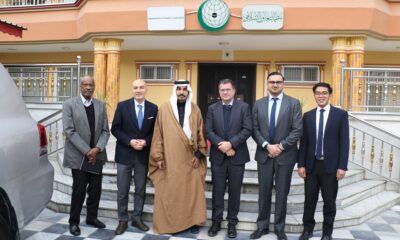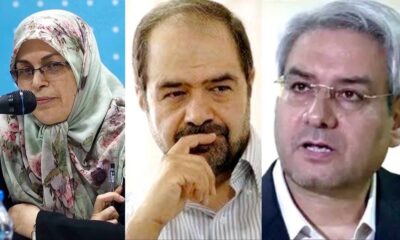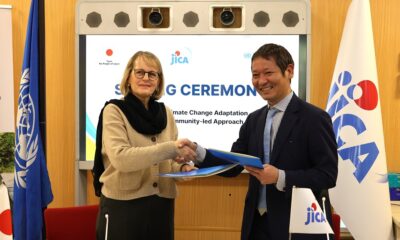Latest News
Ghani says Taliban no longer has an ‘excuse’ to continue the war
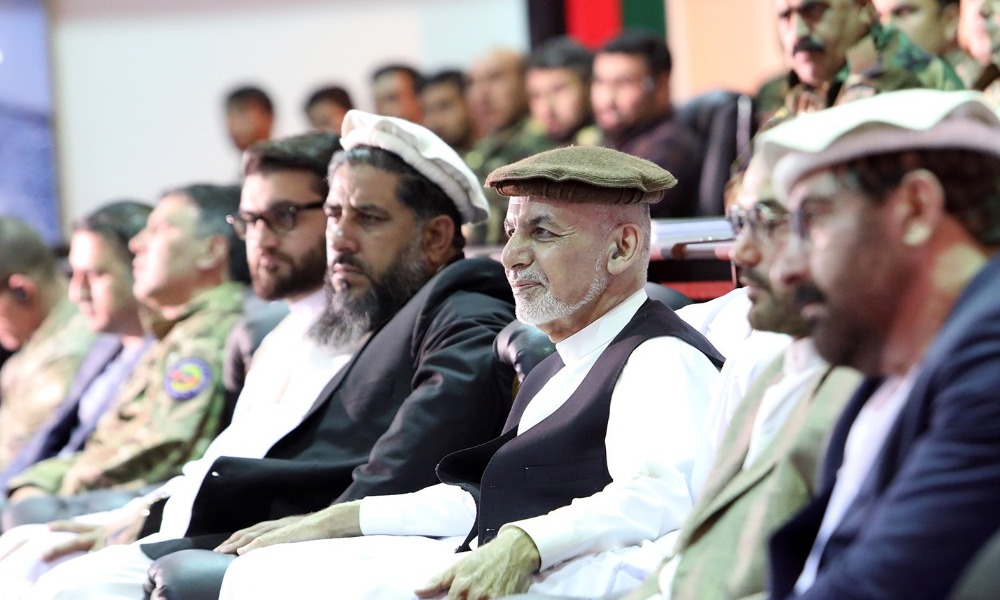
Afghan President Ashraf Ghani on Sunday rejected any military parallels with the US war in Vietnam and dismissed concerns that his country would collapse after American forces are withdrawn.
In an interview with CNN, Ghani said it was time Afghanistan regained its sovereignty after 20 years of American and international presence.
“In the past two years, Afghan defence and security forces have been carrying out over 90 per cent of the operations,” he said.
Ghani said the US announcement of troop withdrawal has been a game changer but it’s now time the Taliban and Pakistan make a choice.
“Will they opt for peace or chaos?” he asked.
Ghani said the Taliban no longer has an excuse to carry on the war now that the international forces are withdrawing and they have no religious justification for the war. He said a political settlement is a must but that the ball is “clearly” in the Taliban’s court.
According to him he has never stood in the way of peace but was used as the Trump administration’s scapegoat. He said he was accused of being an “obstacle in the way of peace”.
This was not the case he said, adding that he was clear about wanting the Trump team to deal directly with the Afghan government and not with the Taliban on the troop withdrawal issue last year.
On what the Taliban might do in future, Ghani said he would like the group to “seize the new context” and reach a political settlement where a government of peace ending in an election can be formed.
He also said that Pakistan’s leaders have all “verbally” said they do not want the Taliban to rule, and that they would like to see a peaceful, stable, democratic government in Afghanistan. He added however that Afghanistan is “key to their prosperity”.
According to him, Pakistan has two choices – share in the benefits of a peaceful Afghanistan or “opt for chaos”. He said Pakistan would be the country most affected by a civil war in Afghanistan.
Ghani also stated that Pakistan could become an anchor for regional stability. On China, he said he did not believe Beijing would get “involved” in regional conflict and stated that Afghanistan does not want “a replacement” for US troops once they have withdrawn.
Latest News
Afghan border minister holds phone talks with Iran’s deputy foreign minister
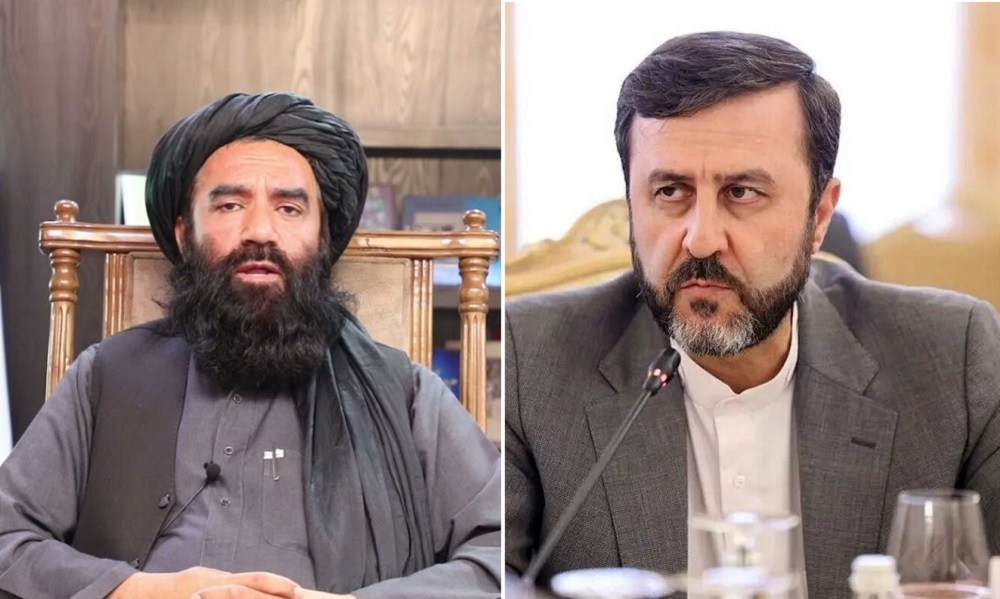
Noorullah Noori, Afghanistan’s Minister of Borders and Tribal Affairs, held a phone conversation with Kazem Gharibabadi, Iran’s Deputy Foreign Minister for Legal and International Affairs, to discuss bilateral border cooperation.
According to the Iranian news agency IRNA, both sides reaffirmed their commitment to strengthening border collaboration, with a particular focus on the ongoing renovation and updating of border markers. They also agreed to accelerate joint technical and legal meetings to enhance coordination.
As part of the agreement, the next meeting of senior border officials from Afghanistan and Iran is scheduled to take place in Iran in 1405 (2026–2027).
Latest News
OIC Kabul mission chief meets German envoy to discuss Afghanistan situation
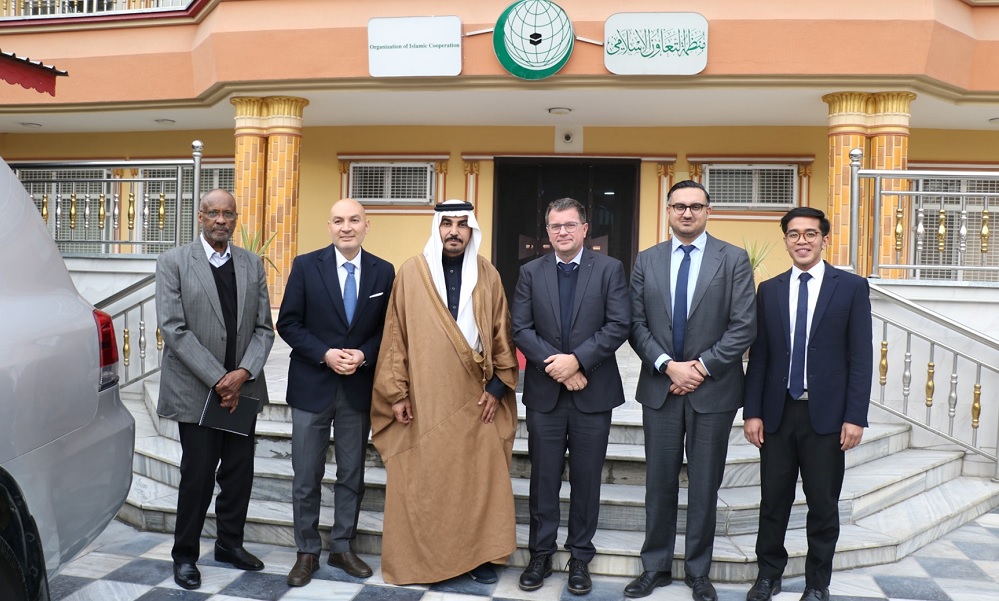
The Director General of the OIC Mission in Kabul, Mohammed Saeed Alayyash, met on Sunday with Rolf Dieter Reinhard, Head of the German Liaison Office for Afghanistan in Doha and Acting Chargé d’Affaires of the German Embassy in Afghanistan.
During the discussion, both sides exchanged views on the latest developments in Afghanistan. They focused on the security situation, as well as the humanitarian and economic conditions faced by the Afghan people.
The two officials also reviewed recent political developments and broader challenges in the country, highlighting the need for continued international engagement and support.
The meeting emphasized the importance of ongoing cooperation and coordination between the OIC Mission and the German side in addressing Afghanistan’s challenges and in supporting efforts to promote stability and improve the humanitarian situation.
Latest News
Pakistan president claims situation in Afghanistan is ‘similar to or worse than pre-9/11’’

Pakistan’s President Asif Ali Zardari has warned that the presence of militant groups in the region poses risks to global peace, and repeated Islamabad’s concerns regarding what it describes as the activities of “terrorist organisations operating from Afghanistan.”
Zardari made the remarks in a statement issued Sunday, as he thanked world leaders for expressing solidarity with Pakistan following the recent attack on an imambargah in Islamabad, which left dozens dead and many others wounded. The incident was claimed by Daesh militant group.
According to the statement from the President’s Secretariat, Zardari said Pakistan remains committed to combating terrorism and stressed that no single country can address the threat alone.
“Pakistan has long maintained that terrorism cannot be confronted by a single country in isolation,” he was quoted as saying.
Citing Pakistan’s experience, he said in the statement that whenever “terrorist groups are allowed space, facilitation or impunity beyond national borders, the consequences are borne by innocent civilians all over the world.”
Zardari further claimed that the situation in Afghanistan under the Islamic Emirate authorities has created conditions “similar to or worse than pre-9/11,” and said this has influenced security developments across the region. IEA has repeatedly rejected such allegations, insisting that Afghan soil is not used against any country.
-

 Latest News2 days ago
Latest News2 days agoAfghanistan to grant one- to ten-year residency to foreign investors
-

 Latest News4 days ago
Latest News4 days agoTerrorist threat in Afghanistan must be taken seriously, China tells UNSC
-

 Sport5 days ago
Sport5 days agoWinter Olympics finally underway, ATN to broadcast exclusively across Afghanistan
-

 Sport5 days ago
Sport5 days agoAfghanistan beat West Indies in final T20 WC warm-up match
-

 Sport3 days ago
Sport3 days agoIndonesia shock Japan to reach historic AFC Futsal Asian Cup final
-

 Sport4 days ago
Sport4 days agoMilano Cortina 2026 Winter Olympics: What You Need to Know
-
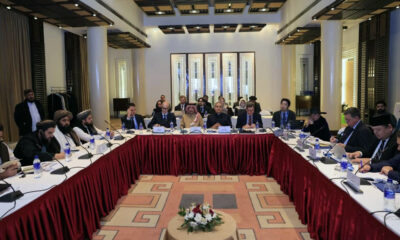
 Latest News5 days ago
Latest News5 days agoAfghanistan hosts 4th Doha Process Counter-Narcotics Meeting, highlights progress
-

 Sport2 days ago
Sport2 days agoIran clinch AFC Futsal Asian Cup 2026 in penalty shootout thriller


